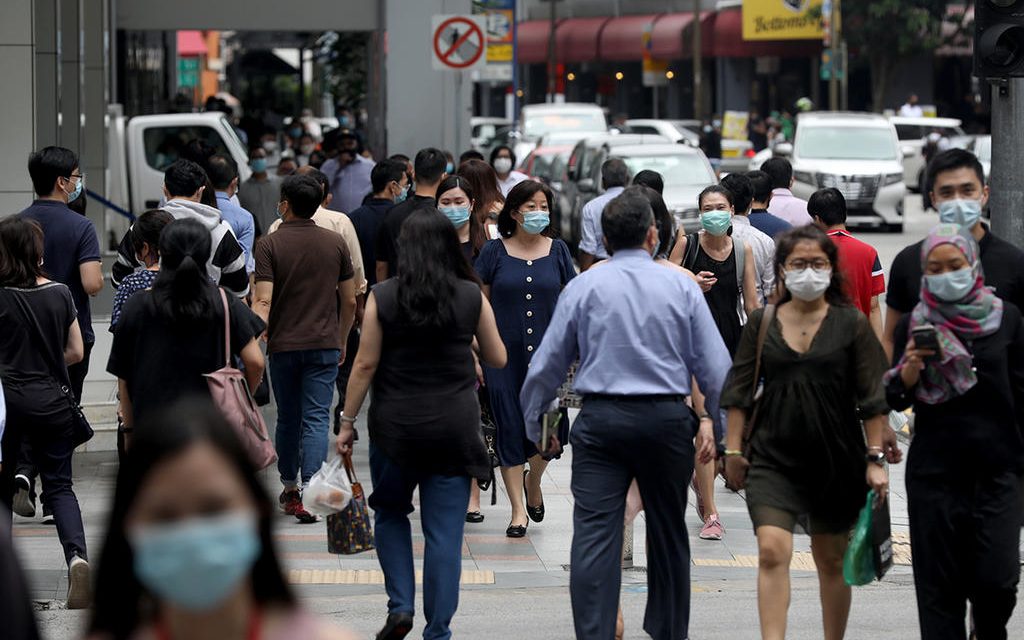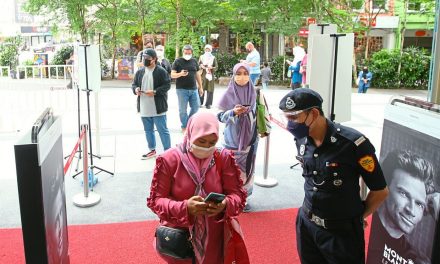SINGAPORE | All employers are urged to adopt a regime that either sees their staff fully vaccinated against Covid-19 or requires unvaccinated staff to undergo regular testing to keep their workplaces free from the coronavirus, said an advisory from Singapore’s tripartite partners yesterday (August 23).
The advisory added that in such scenarios, some Covid-19 related costs, such as test kits, incurred by unvaccinated employees, who are eligible for vaccination, should be borne by them.
However, it said that “under no circumstances” should an employer terminate or threaten to terminate the service of an employee on the basis of vaccination status alone.
Employers should also not place employees on no-pay leave for an extended duration without their mutual consent in writing.
Still, the advisory said employers may exercise their right to contractually terminate employment if unvaccinated employees do not comply with reasonable vaccination-differentiated workplace measures.
The advisory was issued by the Ministry of Manpower, Ministry of Health (MoH), National Trades Union Congress, and the Singapore National Employers Federation.
Although the proportion of Singaporeans that have been fully vaccinated stood at 78 percent, as of Sunday, the tripartite group noted that Singapore needs to “continue to expand our vaccine coverage to optimize our resilience against Covid-19”.
To that end, the Government has announced that from October 1, employees in selected sectors that include healthcare, food and beverage, and fitness studios, will be required to be vaccinated or undergo regular testing.
Dr. Koh Poh Koon, Senior Minister of State for Health and Manpower, said in a Facebook post related to the advisory that “the public service, as the largest employer in Singapore, is leading by example by implementing the VoRT (vaccinate or regular test) regime”.
“The tripartite partners urge all employers to consider adopting the VoRT regime as a company policy for existing employees and new hires,” he said.
The advisory said employers may adopt differentiation measures, in consultation with unions if applicable, between vaccinated and unvaccinated staff.
Here is a summary of the guidelines.
Testing frequency
The guidelines said employers may adopt a VoRT regime on a voluntary basis and subject unvaccinated employees to additional Covid-19 tests, compared to vaccinated employees.
The latest statement said the frequency of testing unvaccinated staff could take reference from the frequency under MOH’s guidelines for the regime.
For example, it could be twice a week for unvaccinated employees in selected sectors.
A test is done under the existing “fast and easy testing” or the “rostered routine testing” regime also counts towards this requirement.
Work and social events
Employers may also require unvaccinated employees to undergo pre-event testing before participating in workplace events, said the guidelines, or implement reduced group sizes when unvaccinated employees participate in such events.
This is especially so for those involving mask-off activities, in line with the prevailing MoH guidelines.
Staff deployment
While unvaccinated staff can be continued to be deployed in higher-risk activities with regular testing, the advisory said employers can also decide whether to redeploy them to another job with a lower risk of Covid-19 infection.
Such a decision should be commensurate with the employee’s experience and skills, as per existing redeployment policies.
“If there are no existing redeployment policies within the organization, the terms and conditions for redeployment should be mutually agreed between employers and employees,” said the advisory.
Other measures
The advisory added that employers can also implement other workplace measures, though they must be “prepared to justify to employees and/or the government” that they are reasonable and necessary for business operations and to better protect the health and safety of all employees.
It added that the union and the employer may mutually agree on other vaccination-differentiated workplace measures.
Costs
The advisory noted that “some costs are necessary and common” for both vaccinated and unvaccinated employees.
In such cases, it said those costs should be borne by the employer.
In cases where costs are required only for unvaccinated employees, the advisory said employers can require medically eligible but unvaccinated employees to bear such additional costs as follows:
― Covid-19 related expenses: These include the costs of test kits and stay-home notice accommodation, which can be recovered either through salary deductions or by requiring employees to pay the service provider directly
― Leave: The advisory noted that unvaccinated employees may be discharged later from treatment, or maybe served with a longer stay-home notice compared to vaccinated employees. In such situations, it said employers can deduct these days from an individual’s existing leave entitlement
― Medical benefits: The advisory said employers may choose to exclude these employees from medical benefits associated with Covid-19
The advisory said these points do not include employees who are medically ineligible for messenger ribonucleic acid (mRNA) vaccines.
Preparing the workplace
The advisory said that employers which adopt the VoRT regime as a company policy should communicate “clearly and in advance to affected employees and jobseekers” about the vaccination-differentiated workplace measures and any associated costs that employees may have to bear.
Monitoring of employees
For the purposes of business continuity, the advisory said employers may ask employees for their vaccination status.
Furthermore, it said that employers that adopt the VoRT regime can also require employees to produce proof of vaccination.
Employees who refuse to do so would be treated as unvaccinated for the purposes of the vaccination-differentiated measures, and they will have to bear the relevant costs.
The advisory also said employers should urge all their medically eligible employees who have yet to be vaccinated to do so, and implement public education programs on vaccine safety and efficacy for their employees.
It said employers should facilitate vaccination by granting paid time-off to employees for Covid-19 vaccination, and additional paid sick leave that is beyond contractual or statutory requirement, in the “rare event” that the employee experiences a vaccine-related adverse event. ― TODAY









